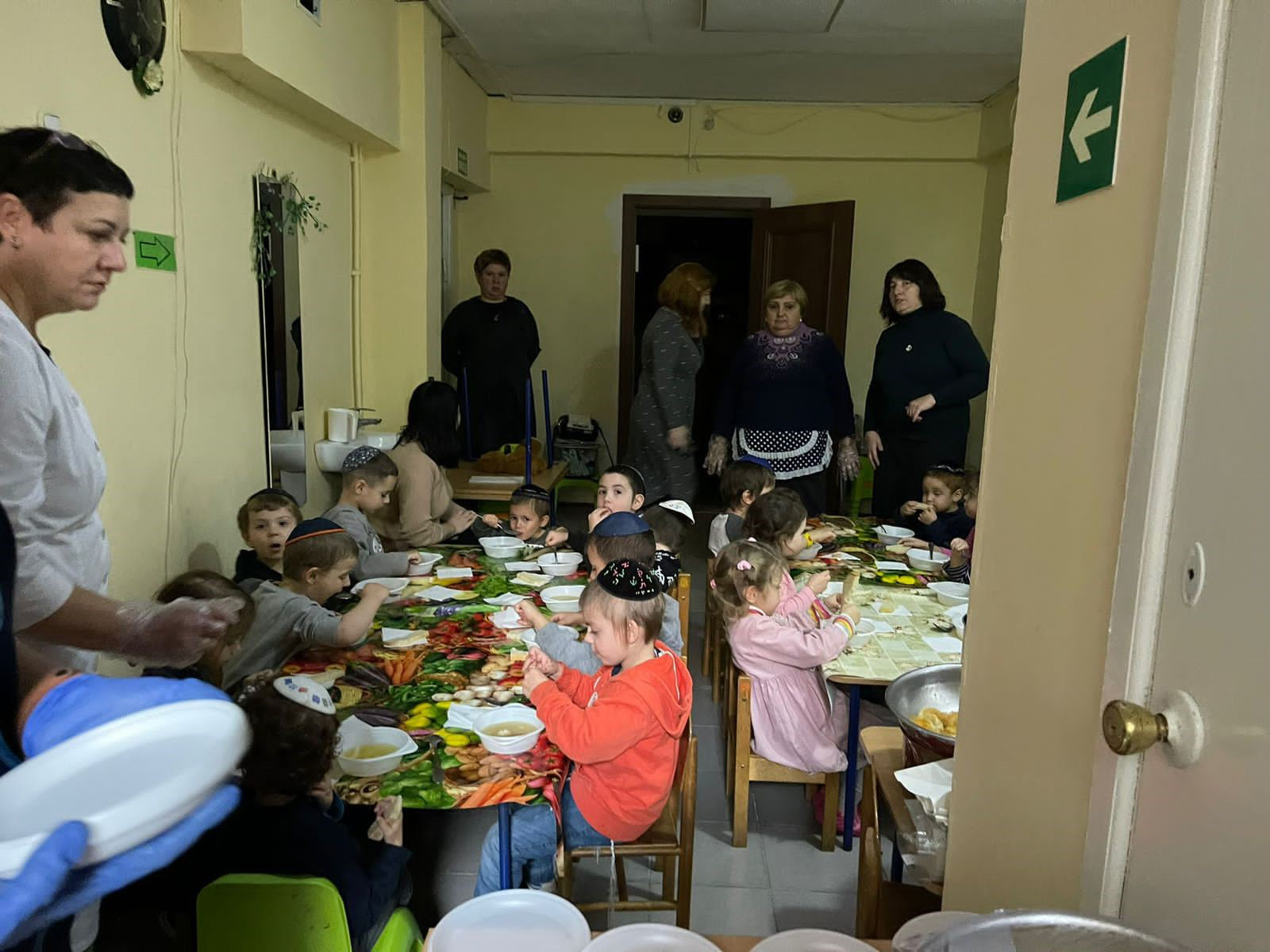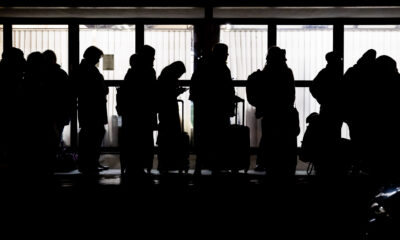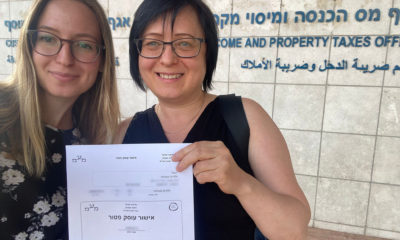
World

Winter brings new “front” for Ukraine’s Jews
Published
1 year agoon
As Russia’s invasion of Ukraine stretches to nine months, the country’s people face an even more harrowing challenge: the bitter winter months with a lack of electricity, heating, adequate clothing, water shortages, and dire conditions.
“The Jewish community in Ukraine is going through a very difficult time,” says Rabbi Meyer Tzvi Stambler, talking to the SA Jewish Report from Dnipro in the east of Ukraine. “These are times that we never thought we would see. To go through such misery, it’s unbelievable! There are hundreds of thousands of Jews still in Ukraine. It is now -2 Celsius, but it can get up to -20 Celsius. The past two weeks, there were days with no water and no electricity.
“On Shabbos, we were in shul and we heard two bombs. We’ve had hours of blackouts, no phones, not enough gas, and no electricity. People are dying. The world doesn’t understand that this is a war against people. This is real terror.”
Stambler is chairperson of the federation council of the Federation of Jewish Communities of Ukraine (FJCU). “At the beginning of the war, the FJCU managed to help more than 30 000 Jews escape the country. We dealt with evacuation; we opened camps for refugees around Europe. We still have a large one open in Hungary. Many Jews moved to Israel.”
But they continue to help another 33 000 families in 298 locations across Ukraine, providing food and hygiene packages since the invasion began. Now, “we’re fighting against time, trying to get as much funding as we can to bring generators, batteries, heaters, warm clothes, and blankets”, Stambler says.
“People are sitting at home with coats and going to sleep with boots. It’s really unbelievable, but every Jew knows that his needs can be met at the Jewish community centre, at the synagogue, at the Chabad House, and they come. We can’t let them go back without what they need. So we give out 30 000 food packages on a monthly basis, and now we’re struggling to bring them warm clothes, heaters, batteries, and generators.”
Kyiv resident and representative of the National Coalition Supporting Eurasian Jewry in Ukraine, Ilya Bezrucho, says “A lot of people are spending 12 hours a day without any electricity. A lot of apartments have no gas or other sources of energy for cooking or heating. Friends around Ukraine report that some power cuts can last up to 20 hours. For example, my mother, in the north of Ukraine, had electricity for only four hours yesterday. But then at night they switch it on again.”
He says the capital city looks like “a nightmare” at night without power. It’s difficult [to see it like that].” Many people live in apartment blocks and struggle to get to their homes without elevators.
“Up to 70% of the Ukrainian electricity network is badly damaged,” he says. “The Russians are striking power plants all over Ukraine. It’s complicated to restore because a lot of the components are difficult to get. In hospitals, many surgeries are done with generators or even without lights. For example in Dnipro, heart surgery was done by flashlight.”
Bezrucho has spent most of the war in Ukraine, but is in Israel to host events encouraging Israelis to support Ukraine. “We have a film about what happened in Mariupol, and a film about the sexual abuses committed by Russian soldiers. Then, we have a film in which viewers wear virtual reality headsets. It shows what’s happening in the occupied regions as coverage in the media is poor. It’s important that Israel is 100% on Ukraine’s side. The suffering is on the same level as the Yom Kippur War.”
South African filmmaker Ronnie Apteker who made his home in Kyiv but fled to South Africa when the war began, wrote on his blog, “We’re anticipating being back in Kyiv by the end of the winter in Europe. The winter months are going to be the ultimate test [in Ukraine]. Ukrainians are strong – they will get through this. What’s going on in Ukraine is sickening, and the world just watches. I know this will end at some point and Ukraine will rebuild. Yes, Ukraine is winning this war on the battlefield but Ukrainian citizens are paying an unfathomable price, and it doesn’t seem fair. There’s light on the horizon, and it will shine bright.”
In Israel, Dov Lipman of oleh support organisation Yad L’Olim says, “We thought the wave of refugees from Ukraine had come to an end, but now with the hard winter coming, we’re expecting a large influx of refugees.”
As for the refugees who arrived in Israel at the beginning of the war, “Some are doing better, some are struggling. Those that are supporting themselves are doing better. Overall, I believe people are doing well,” Lipman says.
The organisation runs a free “shop” where it provides refugees with everything they need from clothing to toiletries and homeware. “We just did a major distribution of heaters and umbrellas for olim refugees to be prepared for the winter here. There’s a lot of need out there. We have people coming back to the shop for more supplies. We’re working hard to ensure that people settle and do well.”
Rebbetzin Rochi Levitansky, who grew up in South Africa and was living in Sumy, Ukraine, before the invasion, recently managed to return there for two months. After living as a refugee, it was “incredible” to return. “There are no words to describe being back in your own home and being there for your community. It was an emotional reunion,” she says. She’s now in Israel on an organised tour along with many other rebbetzins and women from their respective cities. “G-d willing, we’ll go back after it’s over.”
Stambler stayed in Ukraine because “I’m an emissary of the Lubavitcher Rebbe and head of the Jewish community of Ukraine and I feel responsible. About two weeks after war broke out, I sent my family to Israel for eight months. After the chaggim, they returned. It’s a little bit scary, but it’s not like it was at the beginning of the war when we were afraid of being under occupation, which thank G-d didn’t happen. Now it’s dangerous, it’s uncomfortable, but we don’t fear for our lives as we did in the beginning. We hope and pray that Moshiach comes, and we’ll change the world to a better place with no more war and no more misery.”










